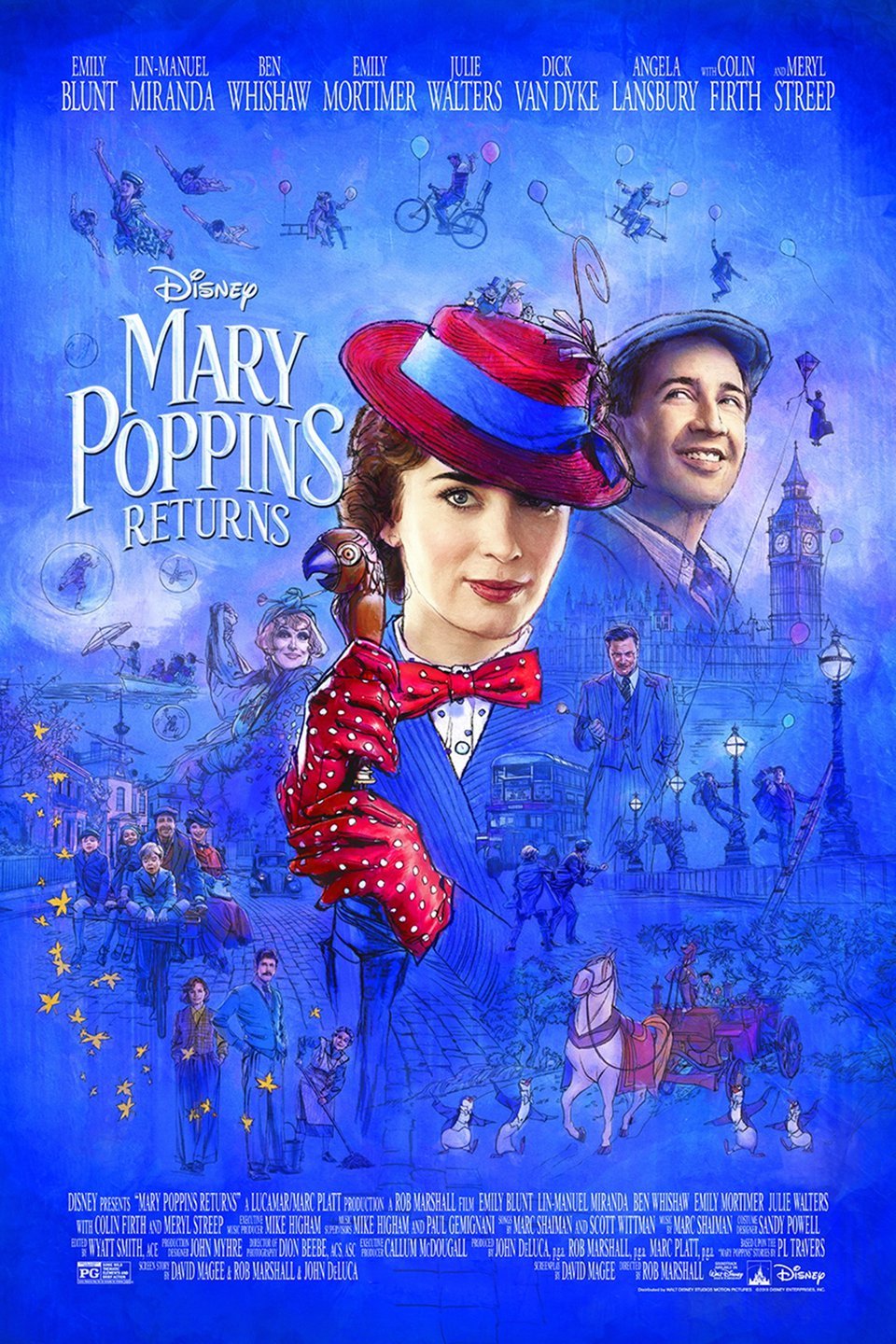
The medicine's going down but the sugar's not hiding all of the bitterness.
Given the nature of its predecessor as one the most beloved and culturally lauded Disney productions ever released in an era heralded as classic for the company, it should perhaps be no surprise that “Mary Poppins Returns” is something of a perfect embodiment of the best creative and worst corporate choices driven by a collective chase for nostalgia that seems to categorize the modern age of the House of Mouse.
“Mary Poppins Returns” sees the titular nanny’s role taken over by Emily Blunt, as she arrives to care for a new generation of children in the Banks family after their father Michael (Ben Whishaw) struggles to cope with keeping the house in order in the advent of his wife’s passing.
Adventures ensue as the family learns to come back together in the face of the impending repossession of their family home by a bank and the adventure that do ensue feature perhaps some of the most absolutely jaw dropping, glee inducingly stunning direction that Disney’s in-house studios have quite possibly ever produced.
Above average cinematic direction applied to musical filmmaking is far from unexpected where a Rob Marshall production is concerned but the scope of the production along with the mixing and matching of techniques at play is more breathtaking than words can do justice.
Even if you’ve grown up seeing “Mary Poppins” your entire life, there really is something about seeing modern cameras capturing the interactions between live actors and characters and worlds rendered predominantly in traditional animation with sharp dialogue and lively choreography that really makes if feel like you’re seeing what made that film so special for the very first time.
The masterful direction and not quite as iconic but infectiously catchy and wonderful soundtrack is to say nothing of the excellence in acting, nailing that perfect balance between the intimacy of cinematic presentation and the bombastic staginess of theatre.
Emily Blunt steps into the role of Mary Poppins and makes it her own, twisting the character’s trademark streak of deadpan humor and British propriety to sell the notion that the children’s adventures are perhaps closer to imaginative magical realism, instilling the importance of one’s sense of wonder with a bit of sass in her interpretation that helps to make the character her own.
Meanwhile, Ben Whishaw continues to be one of the best working character actors in the field as he struggles with his own sorrows in the face of putting up appearances for his children and while it would be criminal to spoil what they do with it, there is a very key cameo from a star of the first film that is a wonder to behold.
Lin Manuel-Miranda however manages to steal the show, stopping just shy of owning every single vocal performance he’s a part of so masterfully that you almost forget how laughably terrible his attempt at a cockney accent is.
“Mary Poppins Returns” is brimming with joy, spectacle, and ingenuity in just about every frame. Unfortunately, that creative energy at the execution level had to have been absent in concept development because the screenplay is as unimaginative as it gets.
Although the film may frame itself as a sequel, the beats of equivocation it runs through regarding its relationship to its iconic predecessor almost feels like running down a checklist, culminating in an embarrassment of a third act abandoning all pretense of organic or powerful story development in favor of an embarrassing race against time climax that almost feels like Disney itself saying “we gave you the fun you came in for, what more do you want?”
The filmmaking on display in this movie is utterly stunning but the casual disregard it seems to have for the actual art of storytelling in favor of distracting the audience with admittedly impressive flash and bang that seems to be slowly becoming a calling card of the company is an unfortunate ugliness that is starting to leave its seams in the final products, especially as more and more of these modern reimaginings keep cropping up with less and less break in between.
“Mary Poppins Returns” indulges in a sort of corporately bankable nostalgia that I’m beginning to find more than a little bit toxic. As I struggle to decide whether the quality of the final product continues to justify that however, the film on display as it is nevertheless delights if you’re the type of person that thinks you’d enjoy it.
7 Flying Kites out of 10
No comments:
Post a Comment